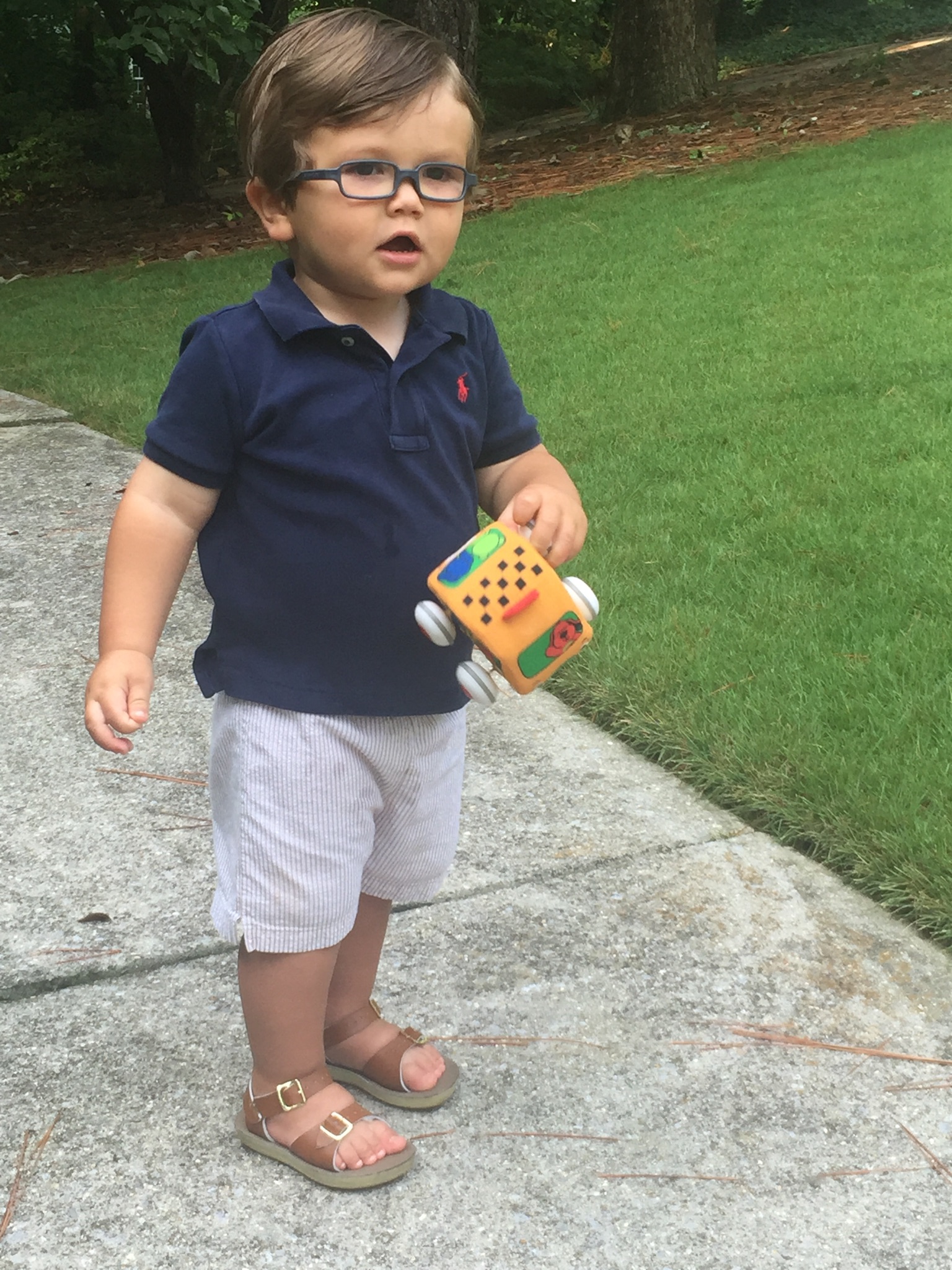Food Allergies: Are They as Serious as We Think?
Published on September 22, 2016, at 3:00 p.m.
by Mary Catherine Molay.
Imagine this: You hand your child his dinner, turn around a few seconds later and notice that he is having an allergic reaction. When your child has a food allergy, moments like these can be scary for parents. For Brooke Grainger, caring for her 23-month-old child, Sam, requires taking extra precautions, as he is allergic to peanuts.
“We got our food, turned around and saw that his whole face was swollen. [Sam] started having trouble breathing,” Grainger said. “There was cross-contamination between the peanut butter and the deli meat [that he was eating].”
During that instance, Grainger was scared. She has been aware of Sam’s allergy since he was nine months old; however, it’s hard to monitor when items are cross-contaminated. Sam goes to a school that is nut-free, and she feels safe having him there. However, Grainger does worry about what will happen when Sam outgrows his current school and attends another, but she lives in the now and takes it day by day.

“Sam eats everything on his plate,” Grainger said. “[My husband] Brian and I had to change our lifestyle to keep him safe. Even if it’s something that we want that has [peanuts], it doesn’t come in the house.”
Sherry Coleman Collins, M.S., RDN, LN, is a food allergy expert and consultant for the National Peanut Board (NPB). NPB represents America’s peanut farmers and “has been working at the forefront of supporting food allergy research, education and outreach for more than a decade,” Collins said. She explained that awareness around food allergies is high. When talking about peanuts specifically, Collins noted that proteins in foods are usually the cause of food allergy reactions, which include peanut allergies. Any food allergy can be serious and even life-threatening.
PR practitioners run into the challenge of providing the right information to parents about food allergies. Parents of children with food allergies are fearful of allergenic foods, but the right information can help them be confident and less afraid. There are many ways that one can go about preventing the ingestion of peanut-containing foods. In that regard, Collins gave a tip as to how cleaning can go a long way.
“When it comes to cleaning surfaces, cleaning with general household cleaners, like 409, and friction removes [the protein]. Using sanitizing gels alone does nothing to remove proteins, but sanitizing wipes can effectively remove proteins from hands. Soap and water are very effective for removing proteins from hands. You cannot kill a protein because it’s not alive,” Collins confirmed.
Some schools and school districts implement nut-free policies out of fear. Collins mentioned that there can be misleading information in the media about nuts in schools that causes some individuals to worry. Food allergy management policies that address staff education, emergency preparation and preventive strategies can go a long way for the child and the school system.
A study done by BioMed Central in Canada reported that there was accidental exposure in “7.5% [of children] at schools/day-cares prohibiting peanut[s, and] 3.7% at schools/day-cares [that allow] peanuts.”
In this regard, Collins said that “experts do not recommend banning peanuts, tree nuts or any other food [at school] because it creates a false sense of security for those who have food allergies.”
Parents of children with food allergies can feel comfortable sending children to school when they partner with the school to be part of the comprehensive approach to managing food allergies in schools. Allergic children can safely interact with the other children, eat around them and be similar to the other kids when simple and specific precautions are taken.
Collins mentioned that “the risk is really for ingestion. Individuals that have a food allergy can safely coexist in an environment where food is being served and eaten. As long as schools are doing everything that they can to prevent reaction, schools can reduce the [likelihood] of a child having a life-threatening reaction, and of this ever becoming a PR problem for the school.” She emphasized that this preventive action includes everything from cleaning the surfaces to preventing cross-contact, teaching children not to share food and avoiding use of food rewards in classrooms.
However, Collins also noted that in environments where food allergies are taken seriously, parents do not need to be afraid to send their child to a school where there are peanuts eaten and served.

“[Just because our child has a food allergy] does not make us a ‘hovering mom,’” Grainger said. “It’s our world. The last thing we want to do is use an EpiPen.”




